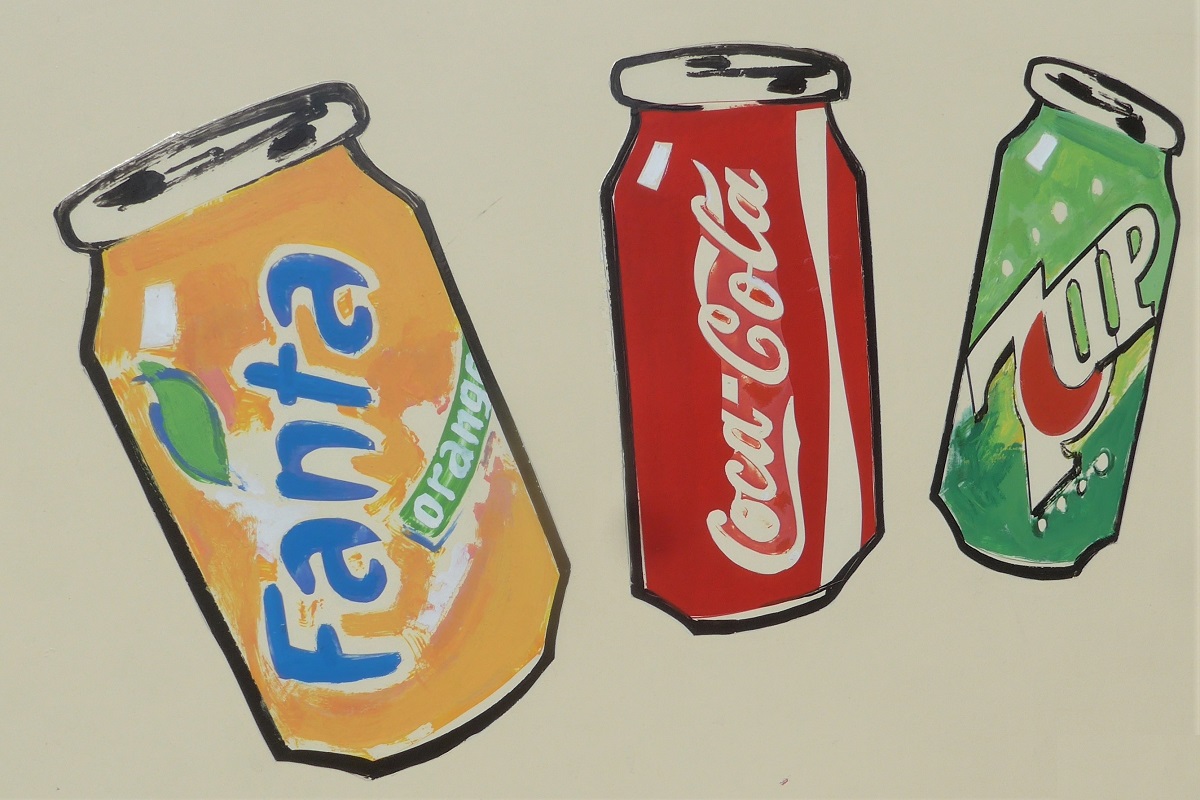 Can can by Chris Young
Can can by Chris Young

Sugar sugar
Sugar has a bad rap, and perhaps rightly so, says Holly Holder. Research has indicated direct links between excessive sugar consumption and weight gain, heart disease, diabetes, lack of energy and poor dental health.
Whilst the health risks sound alarming, it isn’t as simple as reducing the amount of sugar you add to your coffee or steering clear of sugar-coated doughnuts. In fact, even what counts as sugar can be confusing. The NHS specifically cites ‘free sugars’ as the enemy. These not only include the refined sugars that are added, be it to a cake, drink or cereal, but also the naturally-occurring sugars in honey, fruit juices, smoothies and syrups – even products such as I Quit Sugar’s rice malt syrup and Aqua Riva’s agave syrup with ‘sugar substitute’ written in capitals on the front.
Free sugars
The NHS suggests that adults should have no more than 30g of free sugars a day; for context that is less than one can of Coke (35g in a 330ml can) or a Grande Caramel Frappuccino from Starbucks (53.6g of sugar). To add to the confusion, some ‘health foods’ that label themselves as ‘natural’ and ‘fresh’ can be just as bad as (or even worse than) some of the brands that are more recognisable as junk food. For example an Eat Natural Almond and Apricot Yogurt Coated Bar has 15.6g of sugar, half of your daily allowance. It’s no wonder we’re confused.
After years of campaigning by the likes of Sustain’s Children’s Food Campaign, in a bid to help consumers towards healthier habits, in April 2018 the government introduced the Soft Drinks Industry Levy (aka The Sugar Tax). Whilst almost half of the funds received from the levy have been earmarked for initiatives looking to tackle childhood obesity, the main aim of the levy was to encourage companies to reformulate their soft drinks and to get consumers to switch to healthier alternatives. The government claimed that even before the levy came into effect, over 50% of manufacturers had reformulated their drinks.
Artificial sweeteners
However, it is this reformulation that is proving contentious. Vera Zakharov from SUGAR SMART, a campaign run by Sustain, said, “It’s great to see that healthy eating campaigns, the sugar levy, and public demand are driving iconic drinks brands to reformulate their products, but it’s a shame that so many are taking the easy route of simply replacing sugar with artificial sweeteners.”
“Ultimately we need to shift our palates to crave less sweetness, which helps us avoid other sweetened products. Big companies with well-resourced product development teams are well-placed to create products that taste great without relying on large amounts of sweetness.”
Using artificial sweeteners can be problematic in its own right. Research has shown that some sugar substitutes, such as aspartame, can affect, confuse and disrupt the chemical messages inside your brain in a way that can lead to overeating.
Meanwhile, some larger companies are reducing sugar content and showing that these foods and drinks can sell well. One example of this is the fast-food chain Leon, which has developed its own traffic light system to show the levels of sugar in the food and indicate which should only be eaten less frequently, not as an everyday item.
Making healthier choices easier
Despite voluntary traffic light food labelling, the biggest barrier still seems to be tackling accessibility. For example, many sports and leisure settings, offices and hospitals are catered for by large suppliers that don’t always stock smaller-sized, or lower sugar options. The SUGAR SMART campaign tackles this issue by supporting organisations in working with their caterers and suppliers to offer healthier choices, as well as engaging people on the importance of reducing sugar consumption.
Vera adds: “the hope is that if enough people start changing their buying habits and enough food settings commit to stocking healthier options, this may force brands to offer healthier products, and product suppliers to ensure they give these choices to corporate and public sector caterers.”
Tower Hamlets is one of the founding boroughs that helped set up the Healthier Catering Commitment, another initiative that works to encourage organisations to commit to changing their offering to healthier options. Fran Eatwell-Roberts, the Public Health Programmes Manager for Tower Hamlets, told me that whilst 24% of local restaurants and takeaways have made changes, they acknowledge that the commitment still needs to come from those frequented by children and families: of that 24% only 1% were pizza takeaways and 3% were fried chicken shops.
No compromise
It is clear that change is needed across the board, from producers, to retailers and caterers, local authorities, to us taking responsibility ourselves. By choosing alternatives to high sugar products that don’t rely on artificial sweeteners, we can influence producers to adapt, finding solutions that are much lower in sugar, without comprising on taste.
Read more about Sustain's good food campaigning work in London and beyond
London Food Link: London Food Link brings together community food enterprises and projects that are working to make good food accessible to everyone in London to help create a healthy, sustainable and ethical food system for all.
Sustain
The Green House
244-254 Cambridge Heath Road
London E2 9DA
020 3559 6777
sustain@sustainweb.org
Sustain advocates food and agriculture policies and practices that enhance the health and welfare of people and animals, improve the working and living environment, promote equity and enrich society and culture.
© Sustain 2026
Registered charity (no. 1018643)
Data privacy & cookies
Icons by Icons8